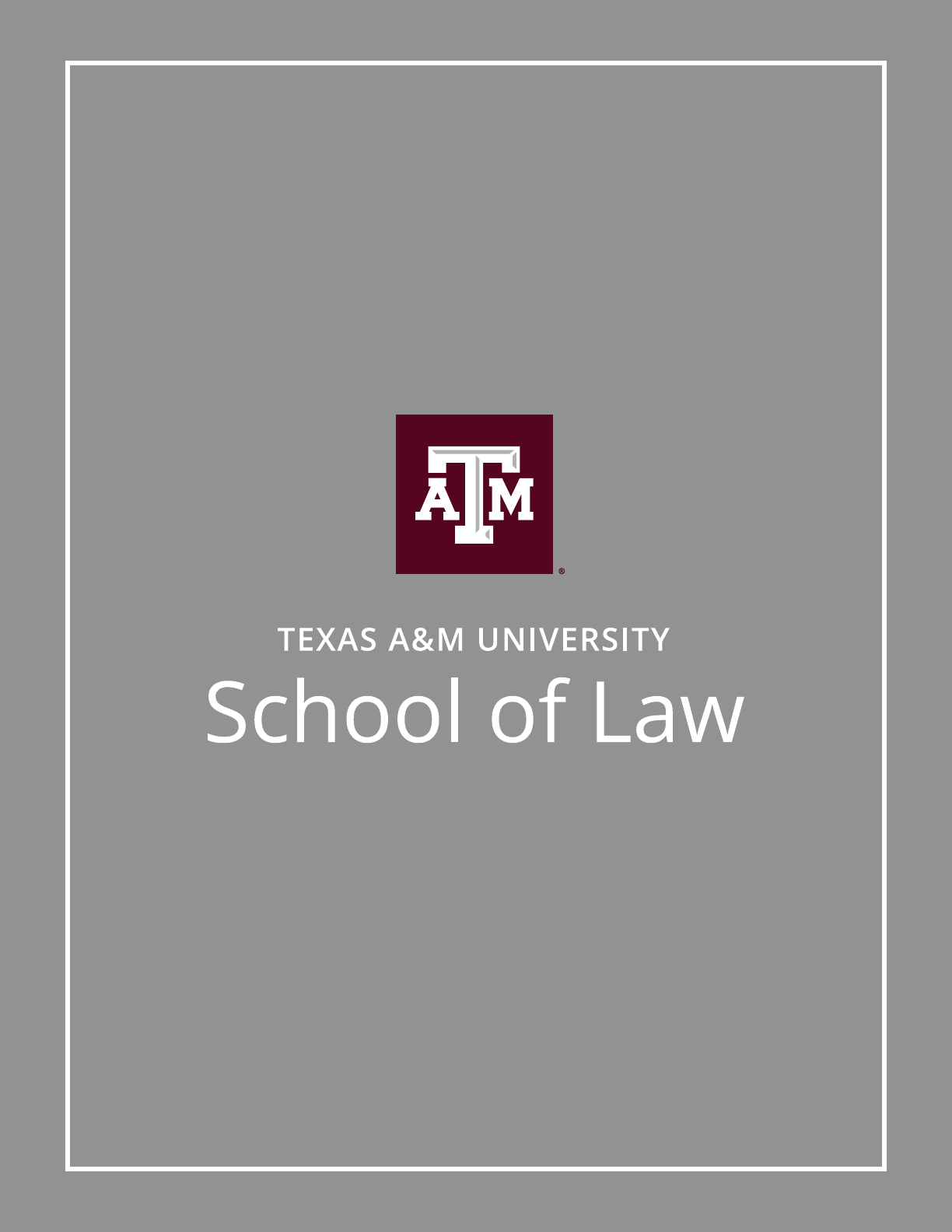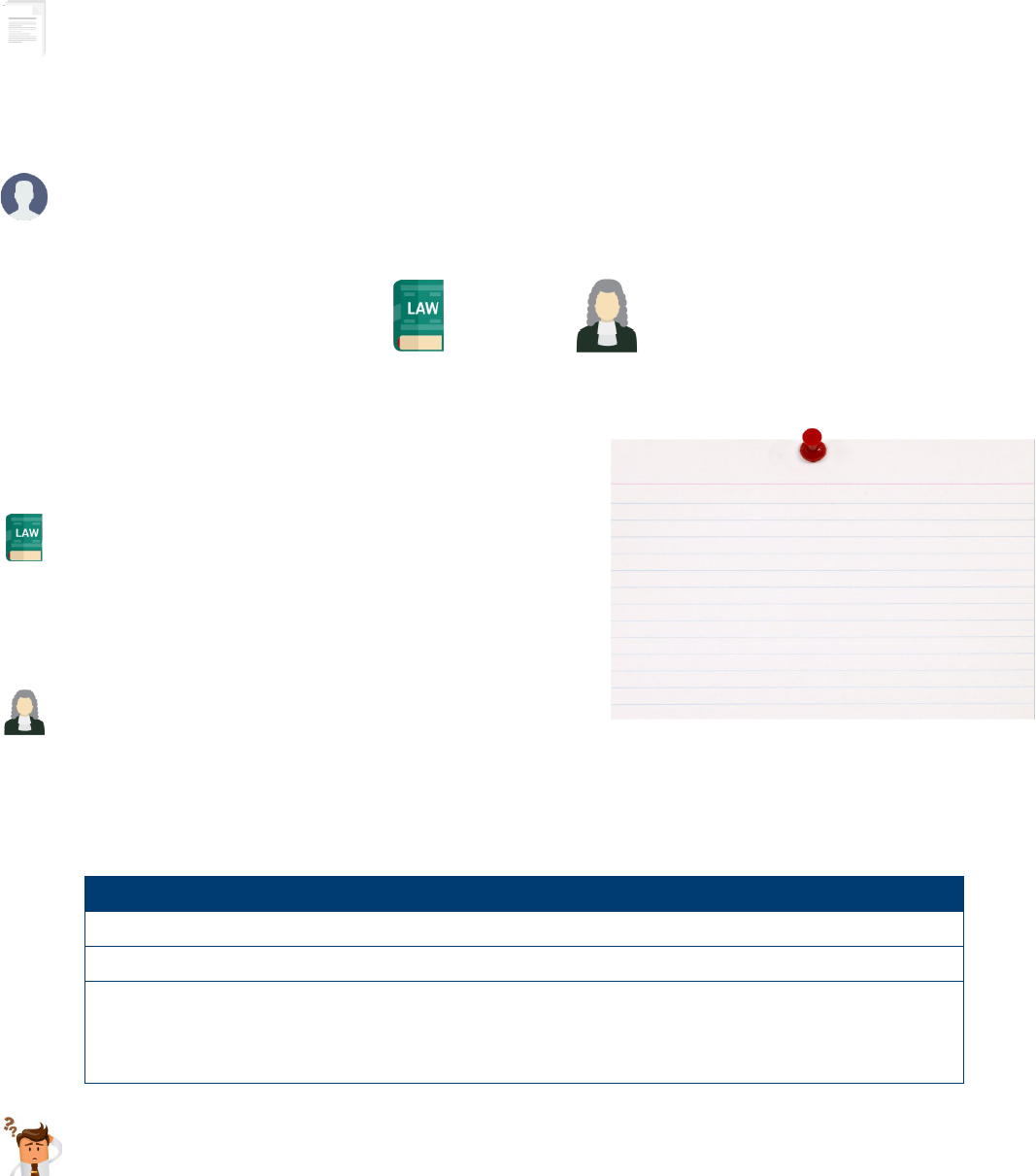
Letters of
Recommendation
Oce of
Career Services

2
What is a letter of recommendation? And do I need it?
A reference letter, or a letter of recommendation, is usually written to attest to a person’s skills, character,
experience, and/or achievements.
You will need letters of recommendation to accompany some applications for legal jobs that may include
internships, externships, and judicial clerkships.
Who can I ask to write a letter of recommendation?
Potential employers are interested in hearing about your legal analytical ability, practical experience, academic
success, and research and writing skills.
Your references should consist of a hybrid of former employers
and academicians so that the potential employer receives
information regarding your overall qualifications.
Law Professors
During law school, cultivate relationships with professors so
they can get to know you in order to be in a position to comment
specifically on your qualifications for a job and be comfortable
accepting your request.
Legal Employers
Former or current legal employers with whom you have a positive relationship are also good candidates for
recommendation letters. If your current employer does not know you are applying for other jobs, it may be best
not to ask for a letter.
Letters of recommendation contain evidence or confirmation of some or all of the following:
How do I ask someone to write a letter of recommendation?
First, make a list of professors and/or supervisors who will be your best advocates. Then, set up an
appointment, preferably in person, to discuss your request, especially if it is the first time you have asked that
particular person to write a letter of recommendation for you.
Requesting letters of recommendation via e-mail is permissible in certain circumstances, for example, if your
recommender has recently written other letters for you or is a good distance away. In your e-mail, however, you
should offer to meet with the recommender to discuss your application just in case he or she would prefer an in
person (or telephonic) meeting.
Law Professors
Legal Employers
Grades in a particular class
Previous positions held in the organization
Attendance and participation in class
Summary of job responsibilities
Strengths, skills, talents, initiative, dedication, integrity, experience, reliability, etc.
Ability to work with a team and/or independently
ProTip!
The person making the
recommendation needs to be familiar
with your skills, capabilities,
experience, and past performance, and
be able to refer to specific examples
whenever possible.
&
Legal Employers
Law Professors

3
When should I ask someone to write a letter of recommendation?
Timing is important. A good rule of thumb is to make your request as far in advance as possible.
When you ask for a letter of recommendation, keep in mind that attorneys, employers, professors and references
in general are quite busy and their time is limited.
When requesting a letter of recommendation, you
should:
1. Articulate your reasons for the recommendation.
2. Discuss the job you are applying for, why you are
interested in it, and how your specific qualifications
and experiences make you a good candidate.
3. Provide your resume so that the recommender can
review your experiences and comment specifically on
your qualifications.
4. Be prepared to provide a writing sample and/or
transcript, in case the recommender wants to review
your writing skills.
5. Let recommenders know whether they should send
their letters directly to your prospective employer or to
you to include as part of a complete application
package.
6. If there is no stated deadline, let the person know when
you plan to submit your completed application and ask
if he or she can submit the letter at about the same time.
7. Offer to provide stamped envelopes or email addresses
in which to send the letters as a courtesy to the
recommenders.
What if they say no?
Remember that letters of recommendation are written on a voluntary basis. A faculty member or employer
may decline to write one for you. If you sense reluctance or the answer is no, ask someone else. You want letters
only from people who enthusiastically support your application.
What can I do to make it easier for the recommender?
1. Provide some of the basic information. For example:
The name, title, email address, and address of where the letter needs to go, the deadline involved, the position
you are applying for, any criteria sought for the position, and all other relevant information.
2. Suggest what you would like them to say—within reason. For example:
“It would be helpful if you could discuss how well I did in your class.”
3. Provide a sample. Sometimes employers or professors ask to see sample recommendation letters to help
them draft their own, or alternatively, ask you to write the first draft due to time constraints.
ProTip!
While people are generally happy to
provide recommendation letters, they may
not remember all the specific details about
you that will enable them to write a strong
letter. This is yet another reason for an
initial face-to-face meeting which gives
you a chance to remind them.
ProTip!
If the recommenders prefer to keep their
letters confidential, but you have been
asked to submit your application as a
complete package, ask them to send the
letters to you in sealed envelopes to ensure
confidentiality.

4
Should I send the recommender a Thank You Note?
YES. Always send a thank you note expressing your appreciation to the people who wrote
recommendation letters for you. It is also appropriate to let them know the status of your job search in the note.
If you accepted the position, you should follow up with this information. Your recommenders will appreciate
knowing that their efforts were instrumental in your career advancement.
Sample Letter of Recommendation—Do Not Copy!
Heading: The following is a basic outline of the structure of a reference letter: Use a business letter format with
the recipient’s name and address, if known, and address them as “Dear [name].” If the recipient is unknown, then
use “Dear Sir/Madam.”
First Paragraph: The first paragraph can contain a brief introduction of the recommender, explaining his or her
position and relationship to you (the candidate).
Second Paragraph: The second paragraph may confirm any facts which are known about the candidate such as
your job title and role within the company, the dates of employment or the dates during which the recommender
was your professor.
Third Paragraph: In the third paragraph, the recommender should aptly describe your skills and qualities. For
instance, he or she may state that you were highly dedicated and committed to the job; that you possess an
excellent work ethic, drive and enthusiasm; that you pay particular attention to detail or have a keen ability to
lead; that you were highly valued and the recommender would gladly re-employ you; and that your contributions
to your law school class were invaluable (if a professor). This is where the recommender can single out any
exceptional qualities you possess which would be impressive to the potential employer.
Fourth Paragraph: Where possible, the fourth paragraph can give a couple of concrete examples of times when
you excelled in your job or in class.
Closing Paragraph: Close the letter on a positive note, and if the recommender is willing to receive further
correspondence about your application, be sure they make this clear. Include the recommender’s contact details
too. As with any business letter, end the letter appropriately: “Sincerely.”
DON’T FORGET TO PROOFREAD
Be sure to proofread your recommendation letters after you’ve written them. If you are unsure of how to spell a
name, you can often check the law firm’s website, its listing on Martindale Hubbell, the NALP directory, or the
State Bar of Texas.
5
SAMPLE LETTERS OF RECOMMENDATION – DO NOT COPY. USE AS A GUIDE ONLY.
Mary Sue Smith
Managing Partner
Smith Jones White, LLP
1234 Main Street
Dallas, TX 75090
December 1, 2024
Ms. Alicia Florrick
Recruiting Coordinator
United States Department of Justice
1234 J Street, N.W.
Washington, DC 20000
Dear Ms. Florrick:
Mr. Alan Applicant has worked directly under my supervision for the past six months.
During that time, Alan has been a self-starter and a productive contributor to team
efforts. In addition to having a high degree of integrity and a cheerful personality, he is
one of those rare individuals who can both follow instructions and take initiative, as
appropriate. He is strong in time management and his competence extends beyond the
skills for which he was originally hired.
For example, when asked to participate and assist in a special discovery project for a
particular client, Alan was ready for the task. In fact, Alan was ultimately instrumental
in successfully completing the project in a timely and efficient manner.
I will indeed be sorry to lose Alan as a law clerk when he moves to Washington, DC for
the summer. Seldom have I been able to make such an enthusiastic recommendation
regarding an employee. I have no hesitation in advising you to hire Alan for this
internship.
Sincerely,
Mary Sue Smith
6
Samuel Stein
Texas A&M University School of Law
1515 Commerce Street
Fort Worth, Texas 76001
(123) 456-789
December 1, 2024
Dear Sir or Madam:
It gives me great satisfaction to recommend Kyle Field for the Northern Fellowship in
Human Rights. I was Kyle’s professor in two law school courses and also worked closely
with him when he was my Research Assistant last summer. It came as a wonderful
surprise when Kyle announced his intention to apply for the Northern Fellowship in
Human Rights. Knowing him as I do, I am certain that Kyle will exhibit the same
enthusiasm during this fellowship as he did during his law school studies.
As a student, Kyle was an active and conscientious member of the class. He challenged
the rest of his classmates to consider issues from new perspectives and often asked
relevant questions. He always proved to be a take-charge person who was able to
successfully develop plans and implement them. Kyle was a dedicated student and his
grades were exemplary.
As my Research Assistant, Kyle analyzed complex issues and drafted memoranda for my
subsequent use in a future publication dealing with The Americans with Disabilities Act.
His assignments were well-written, well-supported, organized, neat and timely. It was
evident that Kyle desired to learn more.
Kyle also had interests outside of academics. He has been an active member of the
Student Organization for Human Rights (S.O.H.R.) at the Texas A&M University School
of Law, a nonpartisan organization dedicated to the advancement of international human
rights law and advocacy. This was an on-campus organization that provided opportunities
for students to explore and engage in human rights work. Kyle was involved in Miami
Habitat for Humanity and formed part of a dedicated group of students who committed
weekends to bringing affordable housing to people in the greater Miami area. With
regard to his personal characteristics, Kyle is extremely charismatic, focused,
determined, outgoing and friendly. I feel very confident that he will be extremely
successful in all his future endeavors. I highly recommend him for the Northern
Fellowship in Human Rights.
Sincerely,
Professor Samuel Stein
